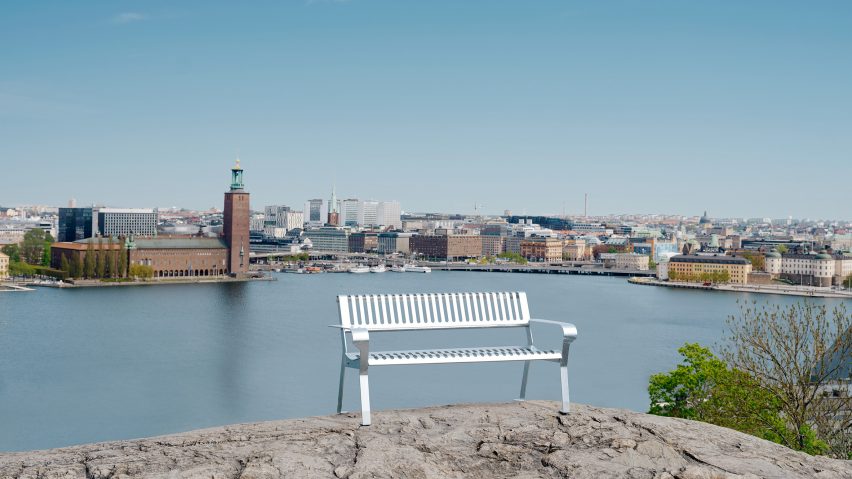
Vestre launches "world's first" furniture made from fossil-free steel
Street furniture brand Vestre and designer Emma Olbers have produced a piece of furniture using fossil-free steel that was made without creating carbon emissions.
The Tellus bench is made from steel forged by Swedish steelmaker SSAB in its converted blast furnace, which uses green hydrogen instead of coal for heat, and so emits no carbon dioxide.
Vestre, which aims to be recognized as the world's most sustainable furniture company, says it is the first furniture manufacturer in the world to use the fossil-free steel. Steel is one of the brand's prime targets for slashing its carbon emissions.
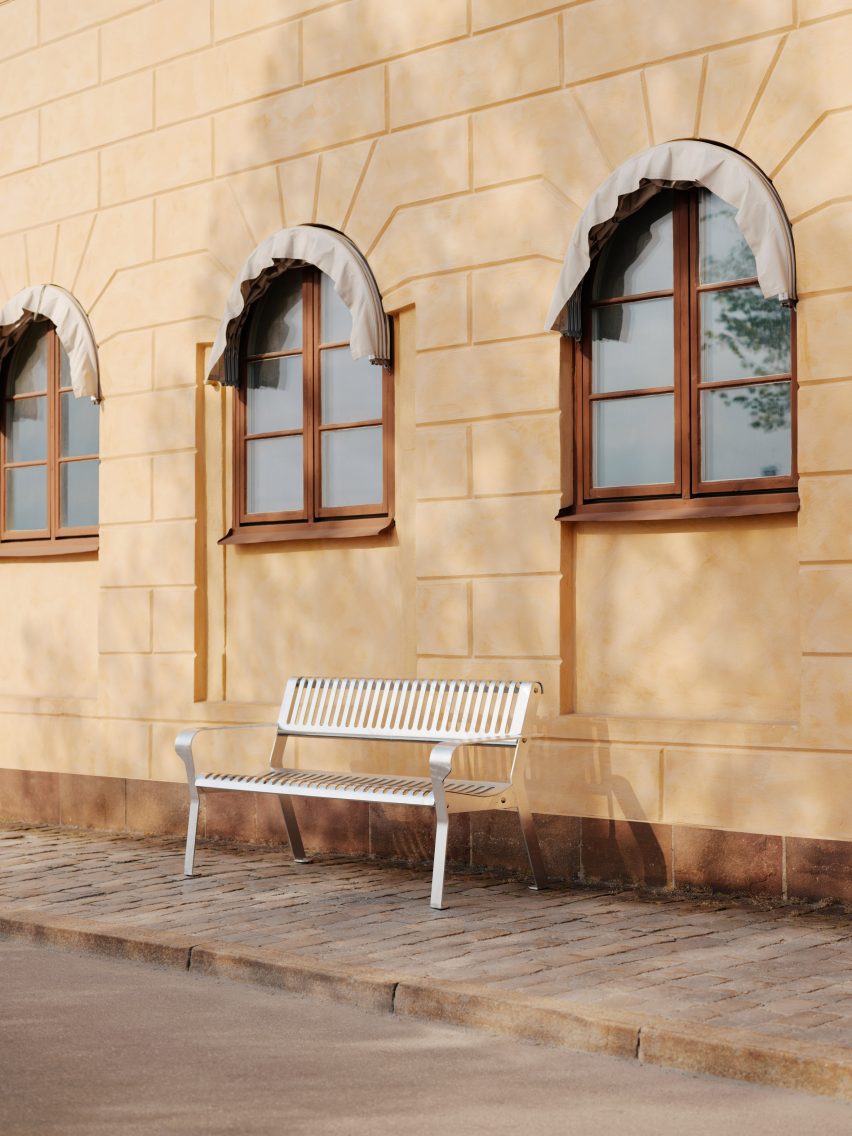
"Early estimates show that converting all our steel to fossil-free could reduce our overall footprint by around 60 percent," said Vestre chief sustainability officer Øyvind Bjørnstad.
For designer Olbers, the goal was to lower emissions even further by using as little material as possible to make the bench. Even though SSAB's alloy is forged without coal, there are still carbon emissions elsewhere in the value chain, such as from mining and transport, so every gram of material still has some carbon cost.
"An outdoor bench for public environments must also withstand a lot of wear and tear," Olbers said. "We have striven to use as little material as possible but still maintain the strong construction."
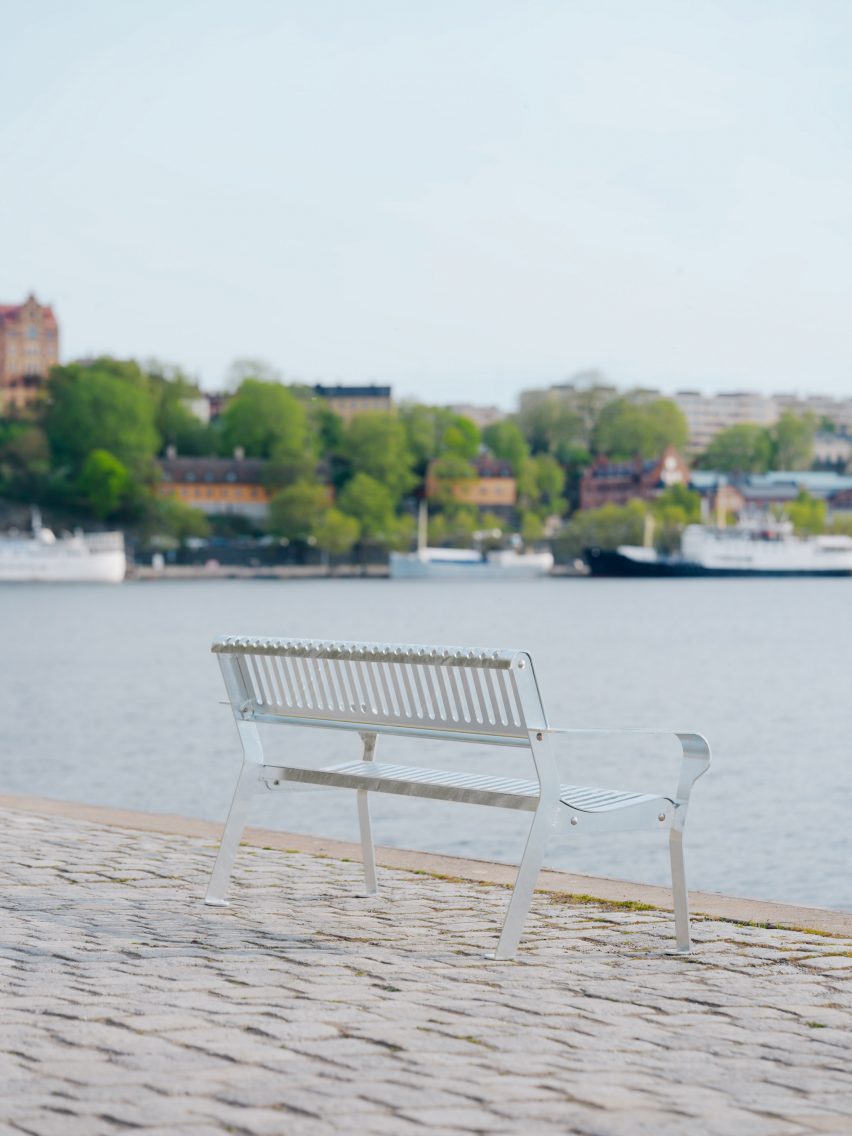
Aesthetically, Olbers wanted the bench to have a "metal feel" but also look inviting, so she gave it wide armrests that would invite repose while providing enough space to rest a coffee cup.
Tellus is intended for parks and other public spaces, and can be ordered in any classic RAL colour. The bench is titled after one of the alternative names for planet Earth.
Vestre came to work with the fossil-free steel following a long-time partnership with SSAB. Bjørnstad describes the companies as having a "tight dialogue" on several sustainability projects.
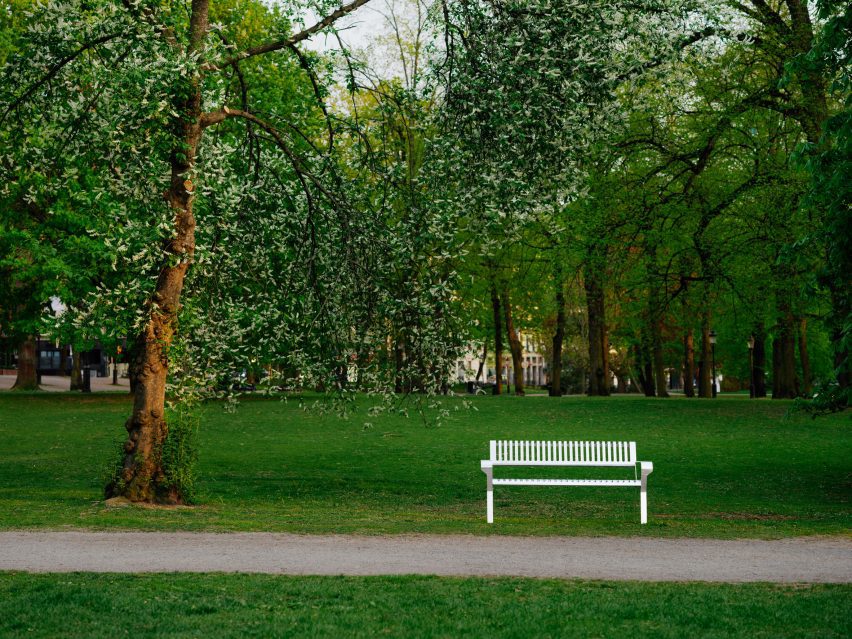
The Norwegian brand brought in Olbers because of the designer's dedication to sustainable practices, which Bjørnstad said involves being highly scientific and rigorous in her approach.
The Swedish designer's previous work includes the Now or Never – 1kg CO2e exhibition at this year's Stockholm Furniture Fair, in which she visualised the carbon emissions of common materials.
The iron and steel industries currently account for around five per cent of total global green house gas emissions. SSAB first announced its plans to make steel free of fossil fuels in 2016 and made its first batch of the alloy last year.
The material has exactly the same properties as traditional steel but is produced using a process called Hydrogen Breakthrough Ironmaking Technology (HYBRIT), in which green hydrogen is burned instead of coal and coke.
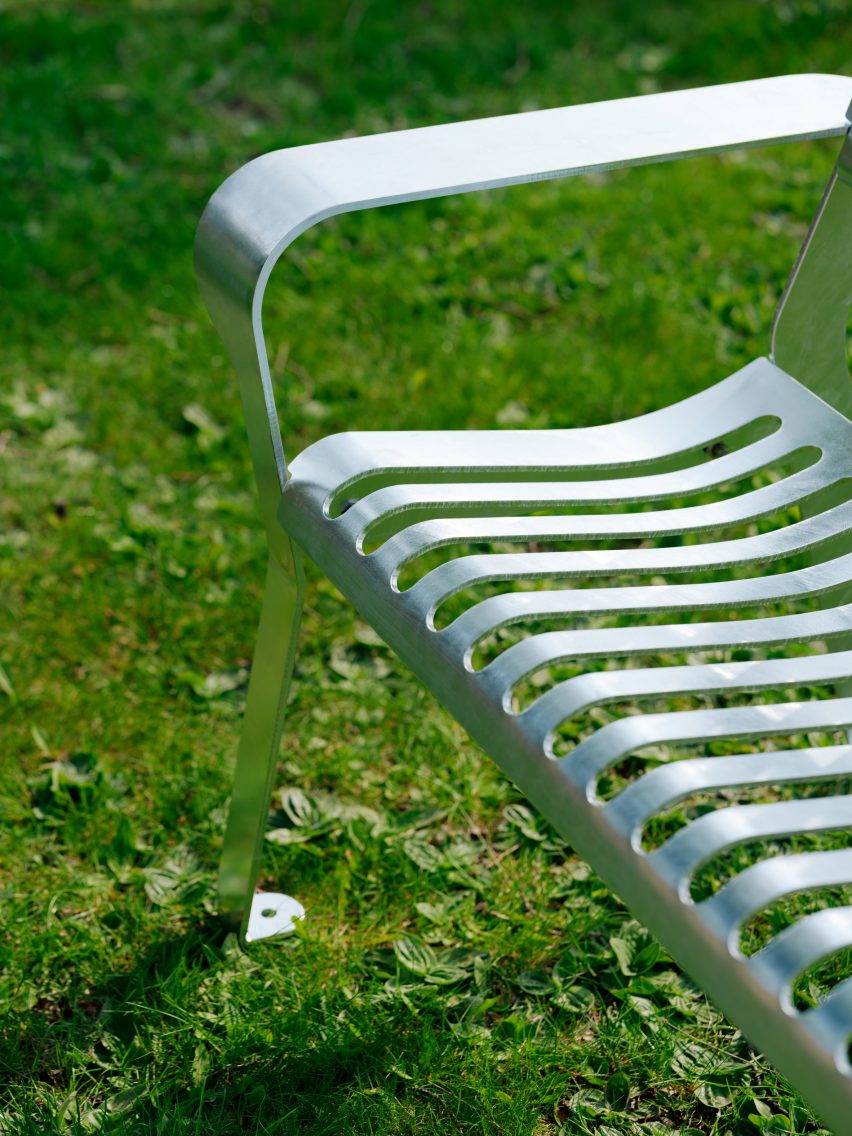
Green hydrogen is obtained via the electrolysis of water, which splits the water molecules into hydrogen and oxygen and emits no greenhouse gases.
SSAB is planning to convert all of its factories in Sweden, Finland and the USA to HYBRIT and phase out its other steel products by 2045.
Doing so could reduce the total CO2 emissions of Sweden by around ten per cent and Finland by approximately seven per cent, SSAB has estimated.
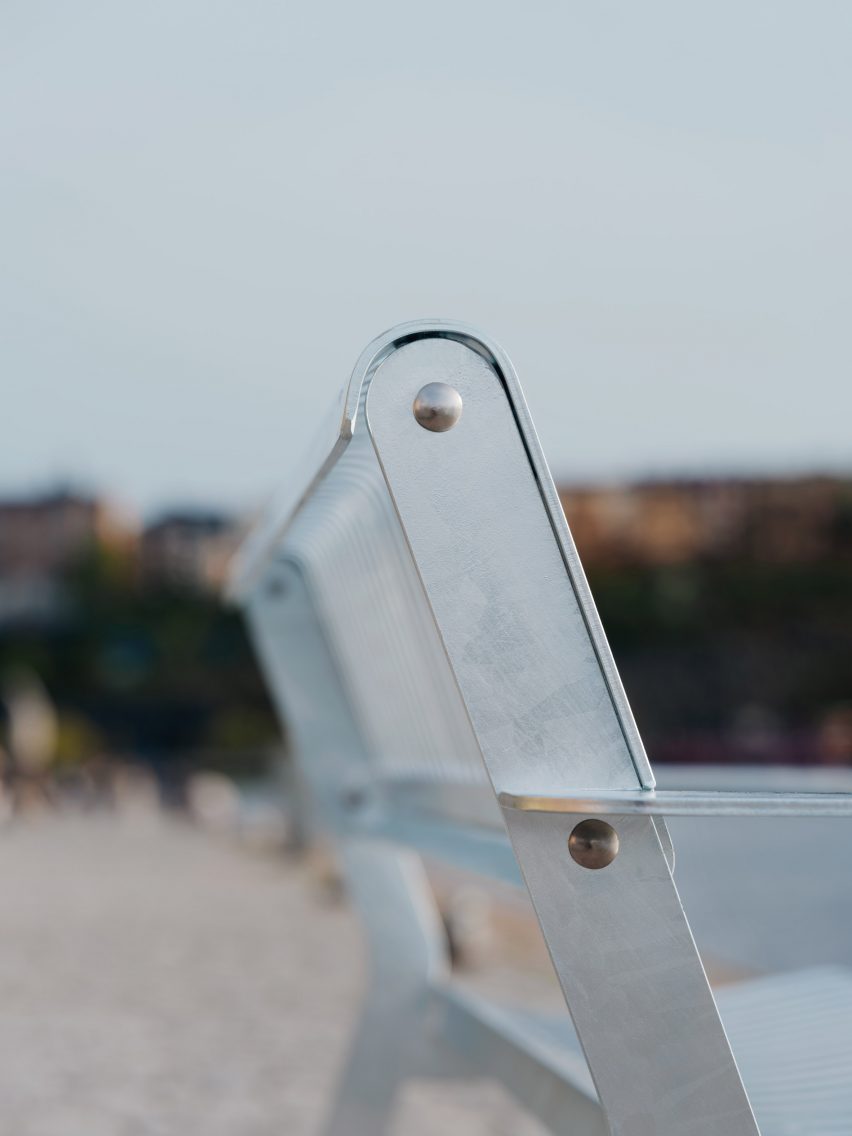
Vestre's previous sustainability efforts include introducing CO2 emissions product labelling and reusing its old fair stands for new installations.
Its production facility in Norway, completed by BIG in 2022, is described by the brand as the most environmentally friendly furniture factory in the world, with Passivhaus strategies, solar panels and geothermal wells.
Photography is by Einar Aslaksen.